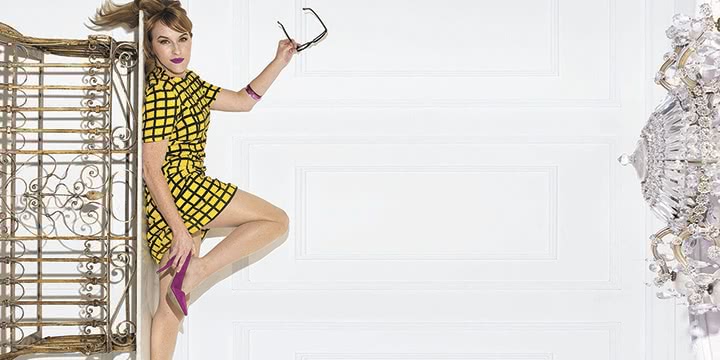Renowned Australian playwright Justin Fleming is bringing the world of 17th century France to modern-day Sydney withThe Literati.
An adaptation of the great Molière’sLes Femmes Savantes, this silly yet deeply poignant piece explores the relationship of two characters, Juliet and Clinton, in the face of disapproving, snobbish family members. Will love prevail or will our heroine’s highbrow family prove that class still wins? Director Lee Lewis discusses the play, as well as the funny yet outwardly feminist themes that aren’t only present now, but lingered within the text long before it relocated to Australia.
“It’s essentially an argument for gender equality,” says Lewis. “In the 17thcentury, the satire was that there was a powerful woman in the house and the husband was downtrodden, so he had to find a voice, which of course is an inversion comedy. But Molière was also speaking to a group of very well-educated, literate women who ran these salons.”
As audience members will quickly discover, the style of Fleming’s interpretation ensures these ideas remain relevant today.
“It’s mostly in the language – Justin has a very contemporary feel in the way he writes,” says Lewis. “Molière is satirising pretension, and that’s a little bit timeless. This play is surprisingly recognisable in terms of literary pretensions and the way people speak down to those with less education, which I think is interesting at the moment as we’re cutting education away. There are obviously some things that belong in another time – it’s about a young girl whose mum is trying to make her marry someone. But then that does still happen here too, in more subtle ways. We have gentled that – she’s not about to be dragged by her hair down the aisle, which was much of a reality in 17th century France. It’s the dance between then and now that’s interesting to me.”
In his own time, Molière was an artistic revolutionary when it came to representation of women – he wrote them with depth, wit and intelligence. However, despite the changes that the modern world has brought about in gender balance, can we really say that gender isn’t still an imperative issue that continues to necessitate exploration? How far have we actually come?
“I find in Molière’s work the beginning of very modern thoughts about women, which is one of the reasons I enjoy doing it,” Lewis says. “I think that came from him being championed by some very smart women and marrying an intelligent young actress and writing characters for her to play. On that level, yes, the rise of women was funny at that point, but it was happening. That’s why I can find the threads to the modern conversation. If you step outside the safe confines of Australia, you see that it still resonates for a huge amount of the world. Because of the conversations from the last couple of years, I think people will still feel those resonances anyway … We’re not done with the conversation yet.”
Although the reality of the gender imbalance in modern society can be draining and depressing, the exploration of it does imbue an element of solidarity – particularly when shown on the stage.
“I find it comforting that across the centuries, humanity struggles with the same imbalance of power – and there are some that will stay the same dynamically, regardless of the details of the actual imbalance,” says Lewis. “I kinda love that. I also kind of love finding Beyoncé in Molière. I find it really reassuring that we are that connected as humans. When you look at the fragmentation that’s happening and the way the world is being torn apart by some truly hideous ideologues – I look at Trump and [what] the horrible thinkers of the far right of the American society will say about people and the damage that it’s doing and I think, ‘You know what? I do have faith there is better humanity that will keep us together.’”
This is of course one of theatre’s essential functions – to highlight the injustices in the world in a safe and often enjoyable way. Molière’s work is perfect for this task, as it is deeply intelligent as well as incredibly funny.
“The play is obviously theatrically silly on some level because we’re doing ten characters with five actors in a very obvious, rather than a transformative way,” Lewis explains. “So there’s a certain amount of storytelling in this, as opposed to realistic representation.
“I think on some level I’m really glad there’s this silly comedy that unites us just a little bit. The power of laughter reminds us that we can do that together. There’s not a lot of ‘together’ at the moment. It’s actually a safe place to start the conversation when you’ve relaxed people into laughter about it.
“What I’ve learned is that people don’t necessarily want to stop talking about gender equality, but they want to talk about it in different ways and they want a relaxed version of it. It does permeate every layer of their life and they want it to, but it can’t be inthe same note all the time. So you hear it in a comic version and you go, ‘This plays with me too – that’s great.’”
[The Literati photo by Brett Boardman]
The Literati plays atSBW Stables Theatre until Saturday July 16; then Riverside Theatres, Wednesday July 27 – Saturday July 30.

































